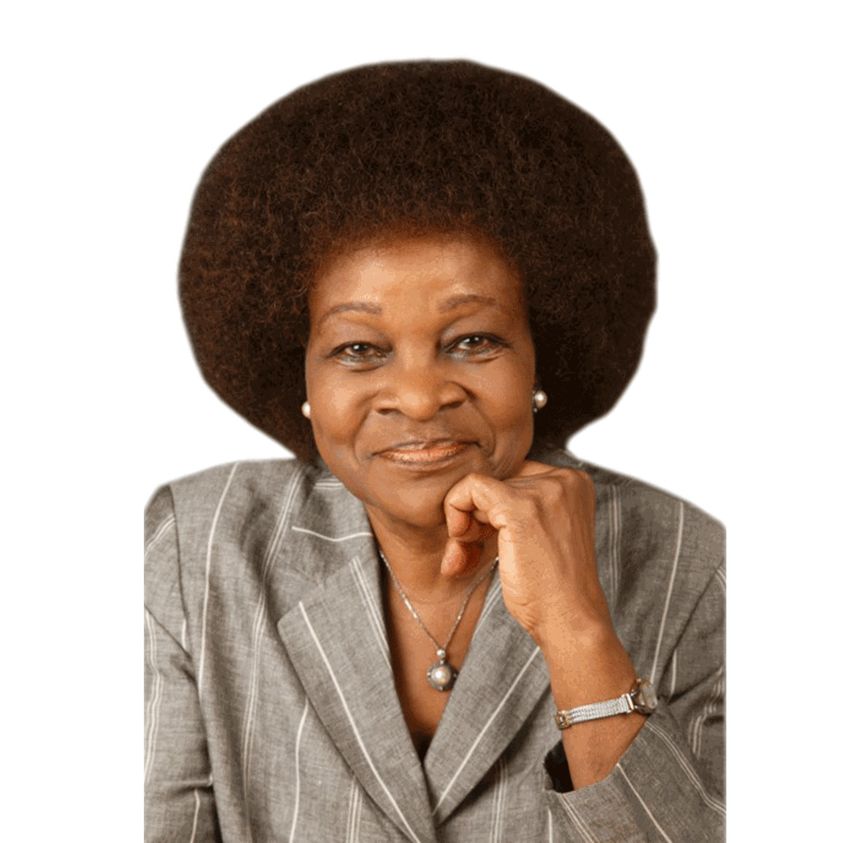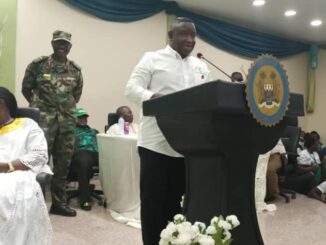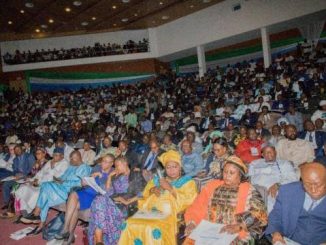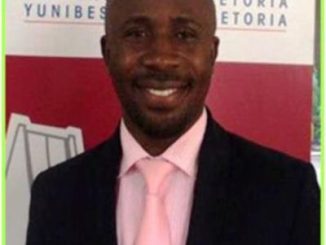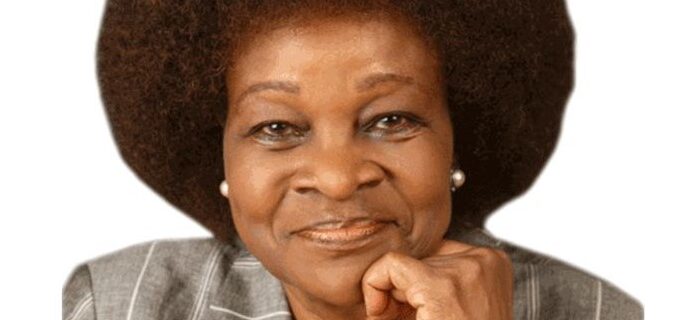
What you need to know:
- As the brutal civil war raged on in the small troubled West African nation of Sierra Leone nearly three decades ago, a Ugandan and UN ambassador Elizabeth Lwanga King was busy flexing her diplomatic skills to bring the belligerents to the negotiating table that eventually culminated to the Abidjan Peace Accord in 1996. Bamuturaki Musinguzi caught up with her.
How was it like living under the Sierra Leone Civil War?
When I was posted to Sierra Leone by the United Nations as the Resident Coordinator of the UN and Resident Representative of the United Nations Development Programme in 1993, I was shocked by the effect of the rebel war on the population and development activities. While the rebels were mainly in the east and north of the country, it was increasingly difficult to carry out development activities except for emergency assistance.
It was my first experience of working with soldiers who were in charge of the country, having carried out a Coup d’état and removed the civilian government. It was my first-hand experience of flying in armed helicopters to look for wounded civilians and bring them to Freetown, the capital city, for medical attention.
As Resident Coordinator, I was also humanitarian coordinator of the UN system and the coordination brought together other emergency agencies and partners. It was hectic as we increasingly focused on emergency response and humanitarian relief assistance to the population. I had a special unit set up for this humanitarian response and I had to convene regular coordination meetings that became daily meetings as the rebels covered more and more of the country.
What was the most devastating part of this war?
The loss of life by innocent people; the cruelty of the rebels who used a method of amputating people’s limbs to create terror; and the desperation of the population who ran into displacement camps to escape from the rebels.
The war destroyed the economy and social fabric of society. The most painful experience for me was having to work in what we called ‘amputee camps,’ where victims of the rebel attacks and had their limbs amputated were looked after. They included men, women and children.
The other horrifying side of the war was the recruitment of young people and children by rebels and forcing them to attack their own villages.
From your experience, what is the main cause of wars in Africa?
Failed governance systems and management that do not genuinely focus on the needs of the people. These lead to marginalisation of the population which become angry and their anger and desperation boil over into conflict and violence. Extreme poverty also leads to frustration and desperation that leads people to turn on each other for survival. Failure to address early warning signs of conflict, which turn into violence and war.
What role did you or UNDP play in ending the war in Sierra Leone?
The United Nations Development Programme (UNDP) played a major role in the search for a solution to the rebel war and dialogue to end the war. Under my leadership and with very close guidance from the then director of the UNDP Regional Bureau for Africa, former President of Liberia Ellen Johnson Sirleaf, UNDP led the process of advocating for a dialogue with the rebels to end the war.
I engaged the leadership of the ruling National Provisional Ruling Council (NPRC) to try the option of dialogue instead of the ongoing military response that was not yielding results. Through the International Committee of the Red Cross (ICRC) we were able to communicate to the leadership of the rebels to encourage them to agree to dialogue.
The UN Secretary General supported our efforts and assigned a full time Peace Envoy, Ambassador Berhanu Dinka to lead the process for peace.
UNDP coordinated the processes for emergency response, humanitarian assistance and supported the peace process together with the Department of Political Affairs of the UN.
UNDP assisted the government to organise a national conference, on the return of Sierra Leone to democratic rule. The participants representing all the regions and interest groups of the country, overwhelmingly decided to move forward with elections to elect a democratic government.
We worked with the leadership of the NPRC to organise elections in spite of some position by elements in the military. Under the leadership of the then chairperson of NPRC, Brig Julius Maada Bio (the current president of Sierra Leone), the country conducted free and fair elections and the military Junta handed over to a democratically elected president, Mr Ahmad Tejan Kabbah.
How did you feel when you were honoured by the people of Sierra Leone with the prestigious title of honorary chief Mammy Yoko II for your contribution to bringing peace to Sierra Leone?
It came as a total surprise, when in the middle of the national consultation on the future of Sierra Leone in Bo town, Southern Province, it was announced that I was to be made honorary chief Mammy Yoko the Second. When the citation was read out as to why I was being honoured, I was totally blown by the acknowledgement by the nation of my efforts as UNDP representative to work for peace in Sierra Leone. I actually wept with humility and gratitude. It dawned on me then that the real reward for development work comes with the results of our efforts and the difference we make to people’s lives. This moment in my life gave me new impetus for aiming to make a difference in people’s lives thorough opportunities given to me to do so.
What does this title entail?
It is an honorary chieftaincy title. The significance of it is more in the name, Madam Yoko or Mammy Yoko that I am named after. Born in 1849, she was an extremely strong woman leader and wife of a powerful war chief of the Mende. She was crowned paramount chief on the death of her husband, making her leader of the Mende people. While in power, she was able to gain control of and unify all Kpa Mende (14 separate chiefdoms) by negotiations and making alliances and occasionally using force. This made her leader of the Mende people. She was a very shrewd politician in managing the relationship with the British colonialists. She was awarded the Silver Medal by Queen Victoria.
Do you believe that the peace you helped usher in that West African nation will hold?
I believe that peace has held in Sierra Leone. The country has not returned to war.
What are the main challenges of holding elections in Africa?
The manipulation of this democratic tool for selection of leaders into a most undemocratic process that is exclusive, monetised and in some cases militarised as well. Fewer and fewer Africans can seek to be elected as the cost of participation has become too high with the bribing of voters which has become a practice in the process.
The level of violence we witness in each election all over Africa makes elections look like a life or death battle ground. We witness Africans losing their lives every five years because the countries are electing a president. The required civic and voter education that are intended to inform and guide citizens on the exercise of their rights in selecting leaders are very rarely conducted adequately.
There is a general loss of confidence in the electoral process and lack of trust in Electoral Commission.
Why don’t we have enough women in top leadership positions in Uganda and Africa at large?
The attainment of gender equality is still an ongoing struggle. While much progress has been made, thanks to the United Nations’ and regional frameworks that have led to national commitments, we still have a long way to go. In Uganda, where the 1995 Constitution was seen as a trailblazer for women in political participation, over the years the affirmative action of special women’s seats in Parliament has not been used to promote the entry of younger women into representative politics. Instead, the seats have been permanently occupied by older and experienced women politicians. Very few women compete for seats against men.
There has also been an over emphasis and focus on women in political leadership and not enough attention on women in public and private sector leadership.
How can African get more women in top leadership positions?
Learn from Rwanda, the global leader, and how political commitment is critical for promoting gender equality in all sectors.
What are the concerns in society to which you are lending your expertise currently?
Conflict resolution; peace building; the restoration of values and ethics in our society; mentoring young women; and the plight of the women victims of the war in northern Uganda.
Diplomatic career with the UN…
It was a great privilege and opportunity to learn and to serve. The experience of representing the UN as resident coordinator and UNDP representative in five African countries (Sierra Leone, Swaziland, Ethiopia, Kenya and Zimbabwe) taught me a great deal about governance and development in Africa.
Serving as deputy director for the Regional Bureau for Africa at UNDP exposed me to an overview of our African nations including the opportunities and challenges we face. I was able to lead in providing UN support on different issues.
As UNDP representative in Swaziland from 1999 to 2003, I led the efforts to assist the Kingdom of Swaziland (Eswatini) in drawing up and adopting a new Constitution after 33 years without a Constitution.
Kenya … Post-election crisis…
As UN resident coordinator in Kenya between 2006 and 2008, I was responsible for coordinating the response of the UN to the post elections crisis of 2007.
Fortunately, my experience gained in Sierra Leone of managing crisis and the fact that I had lived in Kenya before between 1971 and 1989 helped me.
CULLED FROM THE UGANDA MONITOR NEWSPAPER

